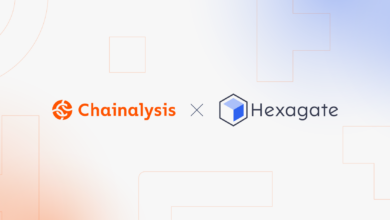IBM Calls Blockchain the Network of Networks and announces Version 2

Maria Wieck, General Manager Blockchain, IBM, @IBMTHINK was one of the first speakers on day one. According to Wieck, “The Internet is the most compelling technology in the last 100 years because it allows you to connect anyone anywhere all around the world. All of those connections are point to point. With internet the killerapp was email, and all these connections are done through a broker or middleman. The data on the internet is not necessarily true. Now with blockchain, everyone has a record of the data at same time, including changes and who made those changes is this is what is opening up some new opportunities”
As such Wieck believes that Blockchain requires new model and principles for operating it. It will require open governance, licensing for participation of communities and while no one controls the data everyone controls the data. This technology has to incorporate open governance licensing and models and not focused on company but community.
Wieck adds, “There are three big uses cases in Blockchain that revolve around the notion of provenance of data, supply chain of that data, flow of money and payment or token of value associated with it. The Ultimate potential of the blockchain is the creation a network of networks, bringing together a trusted economy.
Wieck introduced three clients that have implemented HyperLedger Fabric in their blockchain use cases, the first use case involved provenance, the second supply chain and the third value of money.
Natalie Dyenson, Vice President of Food Safety and Quality at Dole Food and founder of Food Trust program, gave an example of how inefficient current traceability of food sources are because of the complexity, lack of documentation and huge paper trail. So when an outbreak occurs it takes time, a lot of effort and sourcing is still not 100% complete. Natalie believes that using blockchain will help reduce the scope and duration of these outbreaks using the blockchain because it enables transparency. Dole is working via the platform with a grower-owned partner called Centricity to connect audit data to the blockchain.”
Roberto Mancone COO of we.trade talked about how blockchain was solving the issues of inefficiencies in trade finance which has not changed in several decades. He explained, “Currently there are high operational inefficiencies and risk correlated with trade finance. In today’s environment either the exporter is taking on the risk or the importer is. So we brought together 7 banks, which are now 12 to introduce we.trade, an innovative digital platform, where businesses and banks across Europe collaborate to create a transparent, secure environment where opportunities and growth come together. The we.trade platform is utilizing IBM Cloud and smart contracts to enable companies to trade seamlessly, simply and trustfully.
Karen Oldfield, CEO, Halifax Port Authority, also discussed their role in the IBM TradeLens project with Maersk. She explains, “Digitization is one of the biggest transformations happening today, and as a port authority we need to be pioneers and at the forefront because we connect Canada to 150 countries.” She adds “ports have evolved from isolated port, to connected port, port community, and with blockchain a port community connected to the blockchain using Tradelens, part of Canadian pilot because we don’t want to have stamps, papers, ladders, taxis to approve a container to be offloaded. Today 20% cost is in administration, tradelens will reduce the cost and improve efficiencies.
In wrapping up, Wieck explains, “We have started fulfilling the promise of network of networks. 74% of business leaders we surveyed already find a compelling use case for data in a blockchain network. 25% are already past POC ( Proof of Concept) stage. We are working with 1600 professionals helping 500 clients and their many uses cases.”
She adds, “We have announced version 2 BETA is available this week, further assists how quickly you can get started. The next innovations in blockchain having blockchain password less identity, extending the blockchain model for good. Next steps will be implementing adhoc queries in a Zero Knowledge way and we are working on that on Tradelens, multi-cloud deployment and interoperability.





